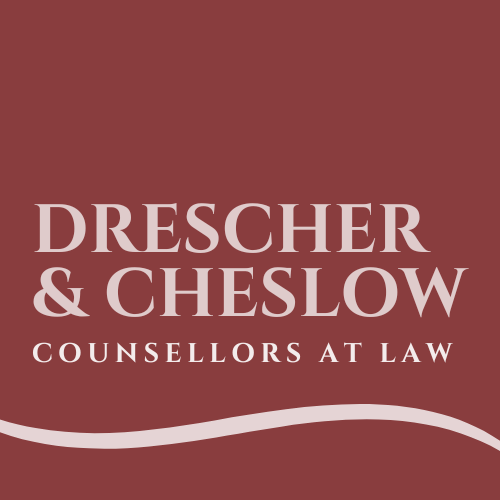America has three major housing issues for seniors: affordability, physical accessibility, and access to medical care and other services. There is a need for creative solutions to housing.

Different VA benefits for aging veterans
The Census Bureau reports that more than 9 million veterans receive services from the Department of Veteran’s Affairs (VA) annually. Additionally, the US Census Bureau reports that more than 18.2 million veterans live in the United States, and 38 percent of them are 65 and older. If you are a veteran or have a loved one who is, it is important to understand all the VA resources and aid that is available. Beyond education programs, home loans, and job search and training resources, the VA also provides a host of other resources to assist you as you transition to your retirement years.
Wartime Veterans Supplemental Income (Veterans Pension)
Supplemental income is available for wartime veterans through the VA pension benefit. If you served at least 90 days of active duty before September 7, 1980, or 24 months after that date, or served the full period for which you were summoned or ordered to active duty with at least one day of wartime, you may qualify. You must have also been discharged under conditions other than dishonorable. There are strict income and asset requirements attached to this benefit as well as the survivors pension and the housebound or aid and attendance allowance discussed below.
Survivors pension
If your late parent or spouse served during wartime, you might qualify for the survivor’s pension. This tax-free program provides relief for unmarried children or a widow or widower who has low income. The deceased military veteran must have served a minimum of 90 days active service with a minimum of one day served during a period of wartime before September 7, 1980, and been dishonorably discharged. After that September date, the deceased veteran must have served a minimum of 24 months or the full period summoned or ordered to serve active duty. Pensions are based on annual family income and under a designated amount set by Congress. More details regarding military pension eligibility are found on the VA website.
Housebound Allowance and Aid & Attendance Benefit
If you are eligible for or are already receiving a veterans’ pension, you may qualify for additional monetary benefits. If you are permanently disabled and must remain in your current home, the Housebound Allowance will increase your monthly pension. Aid & Attendance (A&A) will compensate a veteran who is either residing in a nursing home, bedridden, requires assistance for activities in their day to day life, or whose eyesight problems meet specific thresholds of degradation. More details for Housebound Allowance and A&A eligibility can be found on the VA website.
Veterans Life Insurance Options
There is a wide variety of life insurance offerings through the Veterans Administration. Servicemembers’ Group Life Insurance (SGLI, VA form SGLV8286) is a group term life insurance that is low cost and is automatic for most active-duty service members. It is also available for those veterans who serve at least 12 periods of inactive training per year with the Ready Reserve or the National Guard. Other automatic qualifiers include belonging to the Commissioned Corps of the National Oceanic and Atmospheric Administration or the Public Health Service, and for midshipmen and cadets of the US military academies and ROTC members. You can extend the coverage up to two years if you are fully disabled at separation. Veterans’ Group Life Insurance (VGLI, VA form SGLV 8286A) allows you to convert your SGLI to a civilian program of lifetime renewable term coverage after leaving military service.
Family Servicemembers’ Group Life Insurance
If you qualify for SGLI, your spouse and children are qualified for Family Servicemembers’ Group Life Insurance (FSGLI, VA form SGLV 8286A). This insurance covers your dependent children free of charge, although the coverage for your spouse cannot surpass your amount of coverage.
Servicemembers’ Group Life Insurance Traumatic Injury Protection
If you sustain a traumatic injury during your service that leads to amputation, blindness, or paraplegia, you qualify for benefit payments made through Servicemembers’ Group Life Insurance Traumatic Injury Protection (TSGLI, VA form SGLV8600).
Service-Disabled Veterans’ Life Insurance
The Service-Disabled Veterans’ Life Insurance (S-DVI, VA Form 29-4364) coverage is provided to veterans who have been given a VA rating for what is called a new service-connected disability within the past two years. Coverage is free for eligible veterans who are fully disabled, and you can purchase additional life insurance.
Veterans’ Mortgage Life Insurance
As a veteran, if you are disabled and approved for a VA Specially Adapted Housing (SAH) grant, you may receive mortgage life insurance coverage through the Veterans’ Mortgage Life Insurance (VMLI, VA Form 29-8636).
This link takes you to an overview of these VA insurance benefits. You can click on the insurance program by name and be automatically redirected to the appropriate VA web page for that benefit.
Disability Compensation
Tax-free Dependency and Indemnity Compensation (DIC, VA Form 21-534EZ) is available to veterans who sustain or aggravate an injury or disease during their active service. The disability may include physical and mental health issues and secondary or related items diagnosed after your discharge. Your child may be eligible for DIC if they are not included in the spouse’s DIC, and there is an income-based DIC for parents. A disability can also qualify you for a higher, tax-free Special Monthly Compensation if you are housebound and need special assistance or have trouble performing daily living activities. Additionally, housing and insurance benefits through the VA, like Veterans’ Mortgage Life Insurance, Service-Disabled Veterans’ Insurance, and Adapted Housing Grants may be available.
Geriatrics and Extended Care Services
The Geriatrics and Extended Care Services (GEC) provides help to veterans with life-limiting illnesses, multiple chronic conditions, or disabilities associated with aging, injury, or chronic disease. The GEC will assist a veteran living at home or in a nursing home, assisted living, or other residential community care facilities. GEC services include home health aide care, daily care, telehealth care, palliative care, respite care, hospice care, and even veteran-directed care.
Military Burial
Veteran burial benefits include a gravesite in a national veteran’s cemetery, a government marker or headstone, the opening and closing of that grave and its perpetual care, and a Presidential Memorial Certificate. The marker, headstone, burial flag and certificate are provided at no cost the veteran. Additionally, dependents and spouses buried in a national veteran’s cemetery may also qualify for some benefits such as burial with the veteran, inscription on their headstone, and perpetual care. For a complete description of your veteran benefits, check this VA website link.
Percentages of veterans receiving benefits:
- 25-34 years 24.7 percent
- 36-44 years 21.5 percent
- 45-54 years 25.8 percent
- 55-64 years 19.8 percent
- 65-74 years 5.0 percent
- 75+ years 1.3 percent
If you are a veteran or have a loved one who is, it is crucial to understand that veteran resources go far beyond career and end-of-life issues. Many veterans are not taking full advantage of VA offerings. Many VA age-related programs can benefit a veteran’s life beyond simply planning their future care. Become acquainted with the many options available and determine which programs you qualify for and best serve your interests. With so many benefits available through the VA, you can improve your living situation during your retirement.
The overview is just a summary of what may be available to a wartime veteran or a veteran who is disabled as a result of their prior service. If you or a loved one would like to explore whether you are eligible for benefits, please don’t hesitate to reach out.



